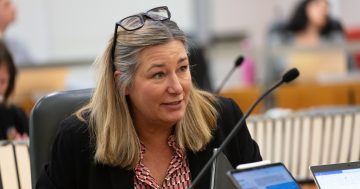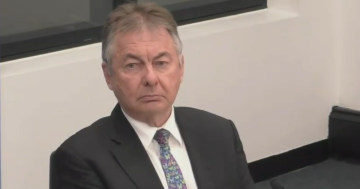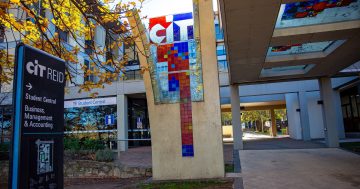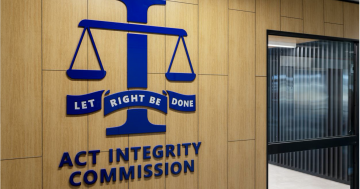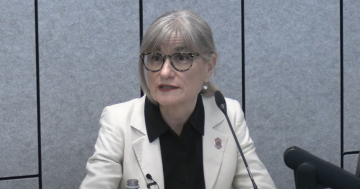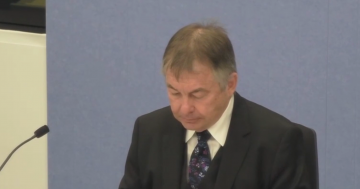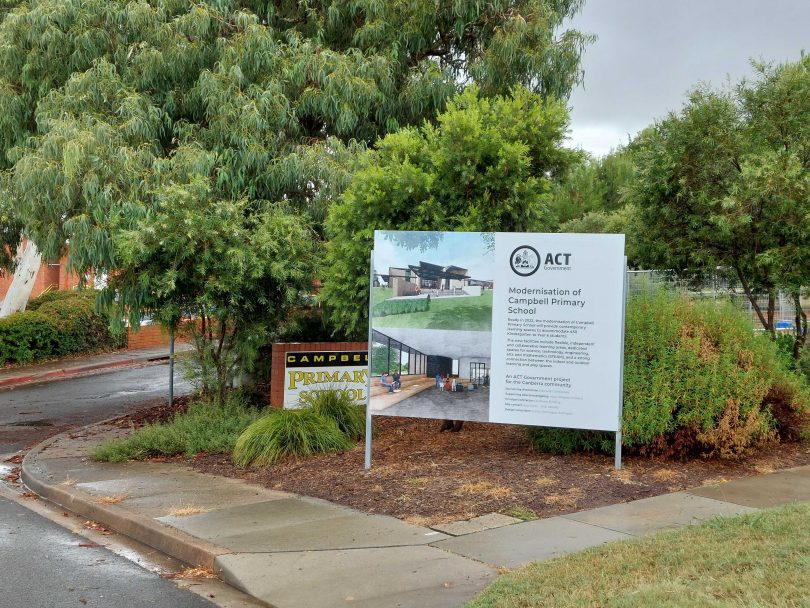
The ACT Integrity Commission is investigating the Campbell Primary School upgrade procurement. Photo: David Murtagh.
A key witness in the ACT Integrity Commission’s investigation into the Campbell Primary School modernisation project attempted in vain to avoid having to give evidence in public during last month’s closing submissions.
Education Minister Yvette Berry’s former chief of staff Joshua Ceramidas went to the Supreme Court to challenge the Commission’s decision to hold closing submissions in public, arguing that it did not have the power to do so and that his reputation would be at risk.
Lawyers for Mr Ceramidas also claimed that the Commissioner’s decision to hold the Operation Kingfisher submissions in public had been infected by apprehended bias.
The corruption watchdog is investigating whether ACT Education Directorate officials failed to act honestly and/or impartially in awarding the contract for the school upgrade between 2019 and 2020.
The tender went to Lendlease despite Canberra firm Manteena being the preferred tenderer at two key stages with a price almost $900,000 lower.
A directorate official has previously told the commission that the views of Ms Berry’s office and the construction union had influenced the decision, which Mr Ceramidas has denied.
Mr Ceramidas previously avoided giving evidence in public examinations on 6 September 2023 on medical grounds and provided a written statement.
In December, the Commissioner decided that closing submissions would also be public, set down for 8 July 2024.
Mr Ceramidas told the Commissioner of his concerns about a public appearance in a written submission dated 30 May, but the Commissioner rejected these in a 6 June decision, prompting Mr Ceramidas to go to the Supreme Court to request an injunction.
His lawyers argued that the Commission had the discretion to take submissions in public or private and was not obliged to either way.
Mr Ceramidas’s lawyers said that the coercive nature of the Act required that privacy and reputation be at the forefront and that a witness’s reputation be protected until there is an actual finding of corruption.
They said there was “a real chance the Commissioner will not find that he has engaged in serious corrupt conduct” but that the stain of the allegation would remain no matter how comprehensively he was cleared.
However, the Commission pointed out that “almost all” of the evidence that might affect the plaintiff’s reputation was already in the public arena.
Acting Justice Michael Elkaim agreed.
Mr Ceramidas also argued that there had been a denial of procedural fairness due to apprehended bias because the Commission had, on nine occasions before 6 June 2024, made statements to the effect that submissions would be held in public, in effect locking it into that position.
However, Acting Justice Elkaim found it would be a “quantum leap” from this to a fear that the decision on 6 June was not made on its merits.
His decision was dated 5 July, but Mr Ceramidas’s name was suppressed. That order was lifted on Monday.
This is the third time that a public official has taken action against the Commission in the Supreme Court over its investigations.
Education Directorate Director-General Katy Haire is also alleging apprehended bias from the Commission, with a hearing expected in November. The government is paying her legal costs.
Former CIT CEO Leanne Cover unsuccessfully sought an injunction to stop the release of a report that found she had engaged in “serious corrupt conduct”.












